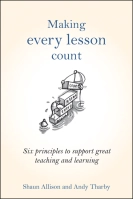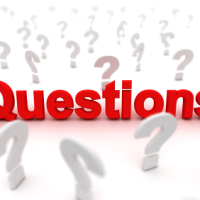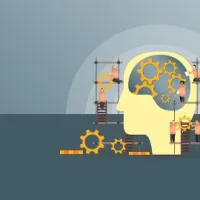
Working in an educational context with the worthwhile aim of reducing gaps between students from differing social backgrounds is a daunting task. Classrooms are inevitably sites of power asymmetry, and not just between the pupils. Although it can be awkward to confront, the social disparity between teachers and pupils is sometimes a tangible and influential factor in schools that needs sensitive, yet robust, handling.
Discourse
Gee describes Discourses (with a capital ‘D’) as ‘social practices’ that involve ‘words, actions, values and beliefs’ that members of particular social groups adopt in order to assert their roles and therefore identities. According to Gee, we are apprenticed into our primary discourses early in life through scaffolded support from people who have already mastered the discourse, usually our families. We are also apprenticed into a secondary discourse as part of our socialisation outside of our early homes and peer groups through social institutions, such as schools.
So what does this have to do with the gaps in our classrooms?
It all comes down to the concept of privilege. Gee explains that certain discourses are privileged over others because they are the systems used to confer control of social goods such as money or cultural authority, and thus bestow the members of that discourse with greater power and elevated status in society. Significantly, schools (and academia as a whole) privilege a particular secondary discourse in the same way, and this is often incorporated into the primary discourse of particular children, traditionally from middle-class homes. As a consequence, these pupils encounter less conflict with the dominant discourse at school compared to pupils from homes where this secondary discourse is not integrated into the primary discourse. Gee argues that classrooms where this disparity is not recognised will ‘simply privilege those students who have begun the acquisition process at home, engaging those students in a teaching/learning process while the others simply fail.’
What Can Teachers Do?
Gee’s theories about the social influence of discourse seem to point to the notion that it is not just the pupils’ use of language that is critical for success, but also that of the teacher. Accordingly, below are four suggestions for practice outlining how teachers can try to overcome the potential discourse disparities in their classrooms. These are by no means absolute, and are perhaps better understood as gateways opening some exploratory paths into this complex social maze.
1. Don’t ‘dumb down’.
Explicit vocabulary instruction and not shying away from more sophisticated, conceptual language is key to overcoming this inequality. Methods for explicit vocabulary instruction are explored by Andy Tharby here and John Tomsett here.
2. Model the rules of the discourse.
Explicit modelling of the discourse in its own right is fundamental, and this must come from the teacher. Pupils need to experience the social practice they are aiming to achieve as modelled by a master – especially those students who are acquiring this as a new secondary discourse. For example, before pairing students together to discuss a set problem or question, the teacher can demonstrate the type of talk and interaction expected through pairing up with a willing student or other adult and acting out the discussion in front of the class. During the discussion, it is essential that the teacher explicitly points out the conventions (words and behaviour) that are in play, such as turn-taking or giving justification for a response. Neil Mercer’s ground rules for exploratory talk provide excellent criteria for identifying the conventions required for successful classroom discourse.
3. Work on a spectrum between speaker and listener.
One of the main tensions at the heart of this practice is that in inducting all pupils into an arbitrarily privileged secondary discourse the teacher is supporting a hierarchy in which some voices are silenced. This clearly has wide political ramifications, the scope of which warrants extensive further consideration. However, one way in which teachers can begin to tackle this conflict is to consciously alternate their role from teacher-as-talker to teacher-as-listener. This entails sometimes handing over the expectation of talking to the pupils (after the modelling described in Suggestion 2 above), and stepping back from being a constant authoritative expert. One way of achieving this identify shift is to come unprepared to a lesson! For example, working on a poem in English that neither the pupils nor the teacher have read before. In doing so, pupils begin to see that their identities can fluctuate from learner to contributor, thus giving them the confidence to enact this discourse themselves in the classroom and beyond.
4. Make it meta.
The EEF toolkit signposts metacognition as having a significant positive impact on pupils’ learning, especially those from more disadvantaged backgrounds. Similarly, in order to empower all pupils to confidently access privileged discourses and to be aware of their status as users of this discourse, teachers need to support pupils’ thinking about how they are engaging with the conventions. One method of achieving this is to use Mercer’s ground rules for exploratory talk as a success criteria. This involves explicit modelling of the ground rules in the first instance, followed by frequent referral to the rules in order for students to reflect on their learning experiences and set targets. This metacognitive process can help pupils to explore beyond what they have learned, to how they achieved this new understanding.
Further Reading
Alexander, R, Towards Dialogic Teaching: Rethinking Classroom Talk, 2008.
Gee, J. P, The Social Mind: Language, Ideology and Social Practice, 1992.
Sutherland, J, Developing Exploratory Talk and Thinking in Secondary English Lessons: Theoretical and Pedagogical Implications, 2010.
Posted by Fran Haynes










Reblogged this on DT & Engineering Teaching Resources and commented:
Good Teachers Talk: Better Teachers Listen…